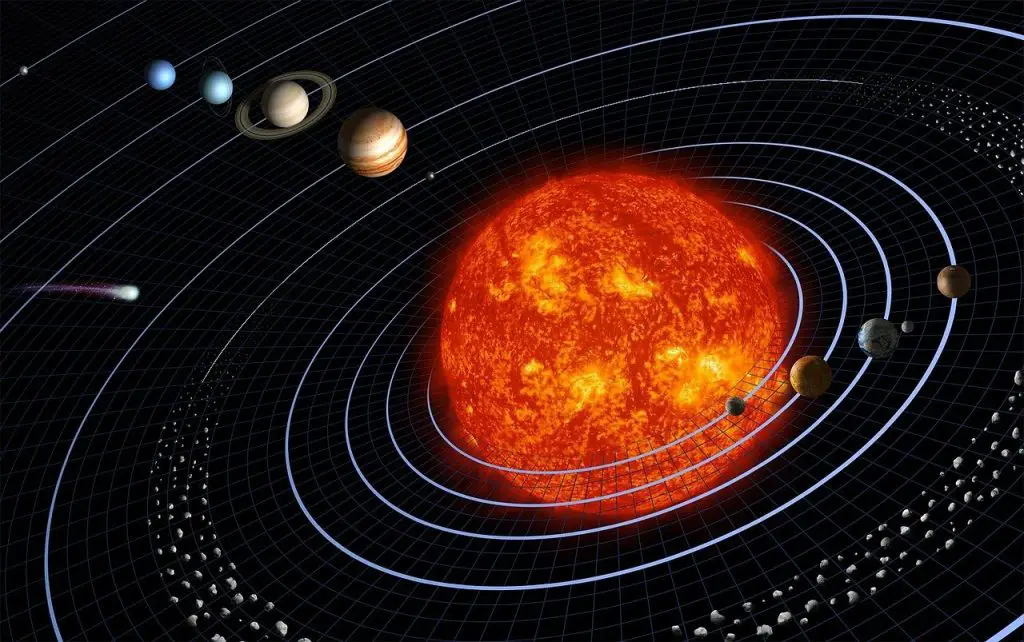Scientists recently discovered a strange anomaly on Neptune. During a recent scientific study, astronomers noticed that Neptune clouds are vanishing. This is the first time researchers are noticing the disappearing clouds of the ice giant after observing the planet for over three decades. Researchers from the University of California (UC) Berkeley are suggesting that the Sun is responsible for the recent disappearance of Neptune’s cloud. In fact, the astronomers that made this recent study were astonished by the changes currently happening on Neptune’s clouds.
“I was surprised by how quickly clouds disappeared on Neptune. We essentially saw cloud activity drop within a few months,” said Imke de Pater, emeritus professor of astronomy at UC Berkeley and senior author of the study, in an official statement.
When Neptune clouds began to disappear
Researchers realized that a strange cloud in Neptune’s upper atmosphere began to vanish in 2019. Scientists noticed that the ice giant has some of its clouds moving above its southern pole. They were amazed as they had never seen anything like this before.
“Even four years later, the images we took this past June showed the clouds haven’t returned to their former levels. This is extremely exciting and unexpected, especially since Neptune’s previous period of low cloud activity was not nearly as dramatic and prolonged,” said Erandi Chavez, a graduate student at Harvard University’s Center for Astrophysics who led the study as an undergraduate astronomy student at UC Berkeley.
Astronomers conducted additional studies to uncover the relationship between Neptune clouds and our Sun’s solar cycle. An official release by the authors of this study revealed that it was strange to realize that Sun still has some effect on Neptune despite the ice giant retaining the position of the outermost planet in the solar system.
Since the ice giant orbits our star at an end, it receives only a small percentage of the Sunlight that reaches Earth. Astronomers have discovered that Neptune orbits the sun at about 2.8 billion miles (4.5 billion kilometers) away. This implies that the sun will likely have less impact on the ice giant when compared to other planets in the solar system.
Astronomers conducted numerous studies based on data obtained from the W. M. Keck Observatory in Hawaii between 1994 to 2022. This detailed investigation in combination with space photos captured by the Hubble Space Telescope enabled researchers to come up with this new study.
Why Scientists Think that Solar Cycle Is Contributing to the Disappearance of Neptune Clouds
Studies revealed the non-steady movement of cloud density on Neptune clouds is synchronizing with the peak of the solar cycle. Note that the solar cycle is the phase in the Sun’s magnetic fields that changes in reverse form every 11 years. Hence, the cycle regulates the production of solar radiation which in turn can potentially impact planets within the solar system. The scientists created a detailed connection between Neptune’s clouds and a particular phase of the Sun’s solar cycle.
This unique connection was obtained from 2.5 solar cycles worth of cloud activity data gathered over 29 years. The Sun often generates highly intense ultraviolet (UV) radiation during these peak periods. As a result of these UV radiations, cloud cover on Neptune increased two years later. The clouds can begin to dissipate after attaining the peak. The scientists also discovered a positive correlation that exists between the number of clouds and the brightness of the planet from the Sunlight reflecting it off.
“These remarkable data give us the strongest evidence yet that Neptune’s cloud cover correlates with the Sun’s cycle. Our findings support the theory that the Sun’s UV rays, when strong enough, may be triggering a photochemical reaction that produces Neptune’s clouds,” said de Pater.
The researchers published their findings in the journal Icarus.
Conclusion
In a recent study, scientists discovered that Neptune clouds are disappearing. Based on their findings, they realized that the disappearance could occur due to the solar cycle. However, follow-up studies will help astronomers to learn more about the sudden disappearance of Neptune clouds. What do you think about this fascinating study?




